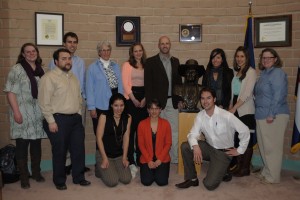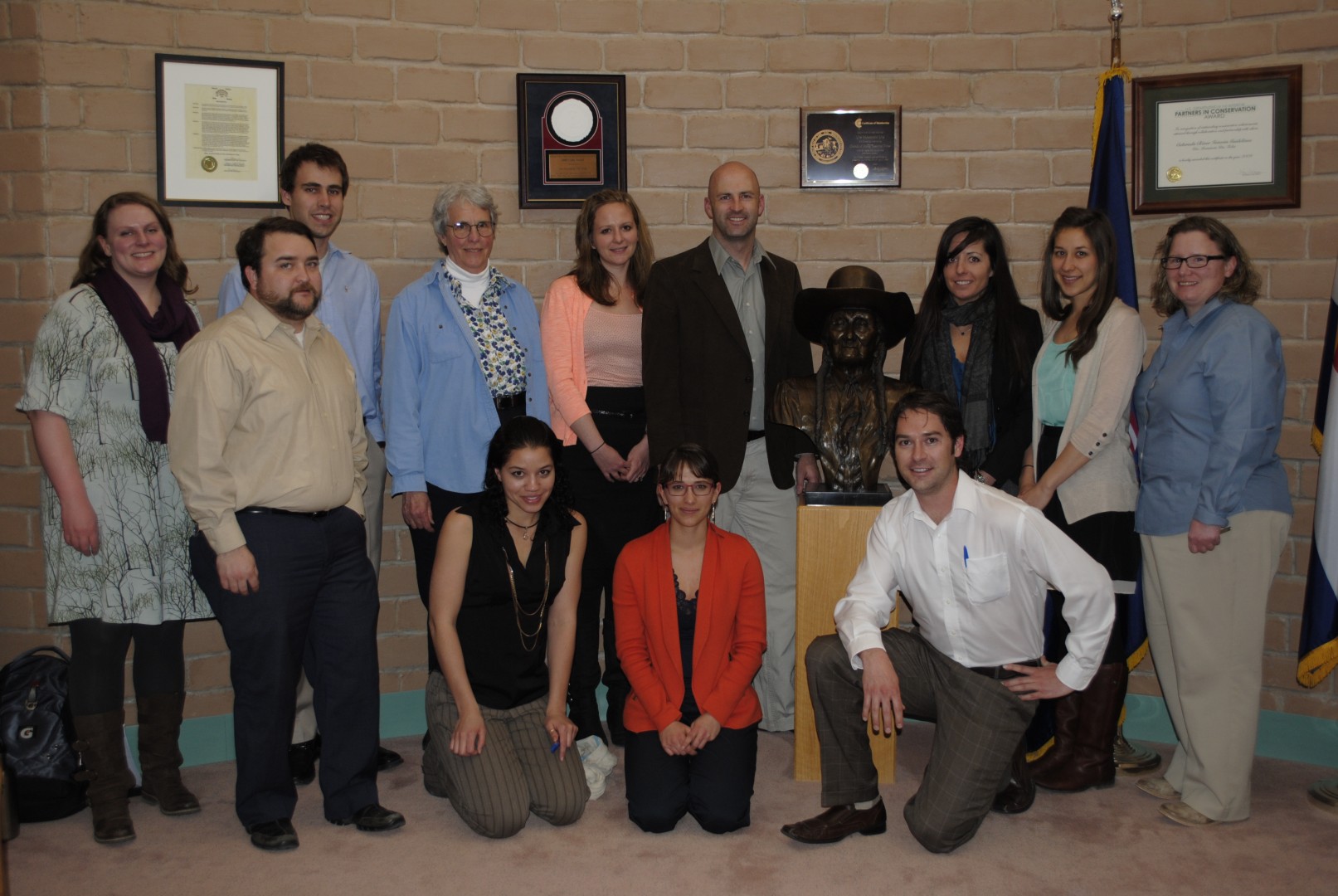
Eleven law students spent their spring break writing and executing over 60 wills for two Native American tribes as part of DU’s first Tribal Wills Project, according to Sturm College of Law Professor Lucy Marsh. In November 2012, John Roach, Fiduciary Trust Officer for the Southwest Region, Department of Interior, reached out to the Student Law Office to see if students wanted to draft wills.
“Normally law students don’t get a chance to talk to a real client or do anything real, for the whole time they’re in law school, and this is so much more meaningful, to draft a real will for a real person,” said Marsh.
The students and Marsh stayed with the Ute Mountain tribe from Sunday, March 17 to Tuesday, March 19 and traveled to the Southern Ute tribe on Wednesday. Both tribes donated rooms for Marsh and the students to stay in.
Marsh said the teamwork between the tribal members and the students was “outstanding.”“The students really had a good background as to the tribal customs of the people we were dealing with and the law, which is extremely complex,” said Marsh.
Second year law student Kate Puckett said she has done practical legal work before but said this experience increased her confidence.
“It kind of upped the ante when we went down there because it was the first time that I had ever been left alone with a client and people were asking me to use my knowledge,” said Puckett. “I grew a lot as a student and as a lawyer, to be confident in the knowledge that I knew.”
Each student had the chance to work with several clients over the course of the week. Second year law student Colin Fletcher said it was a “surreal” experience.
“It was amazing getting actually to sit down and interview the clients and work with them start to finish,” said Fletcher. “These are your clients’ last wishes, so it’s a big deal.”
The average will took about two or three hours to draft and get approved; in Denver, it takes about three weeks to get a polished copy, according to Marsh.
Students attended three training sessions before the trip. Marsh said they put out “very good-quality wills.”
“The students did all the drafting,” said Marsh. “Whenever I’d see anything that was confusing or not clear or whatever, I’d send it back and correct it, so I think they learned a lot doing that.”
Marsh also said she was pleased by the amount of tribal members that participated, noting that there is a social taboo in talking or writing about death in some tribes.
“The [clients] who were giving those special items and trusting us to put that in the will, that meant a great deal to all of us,” said Marsh.
Marsh noted there was some difficulty executing wills among a small group.
“I was gone out of the room for maybe 10 minutes one night… I got back after maybe 10 minutes and all the students said, ‘Oh don’t ever leave again!’ because they couldn’t get the wills signed until I’d approved them,” said Marsh. “It was kind of a roadblock that everything had to go through me, and it would be much better if there were more people. We need more in the way of supervision by licensed attorneys.”
Fletcher spent one day working on a will for 14 hours.
“It can be cumbersome just because of the belief system down there and because people’s schedules and the fact that some people don’t really have people that they would think to name as their personal representative (executor of their will upon their death),” said Fletcher.
“They kind of keep coming back and seeing you after you give them time to think about it, which is kind of ideally how it should work,” said Fletcher.
Marsh said the program should expand within DU as well as geographically, expressing interest in working in New Mexico.
“I would love to see the law school expand the program and I think what we need to do is get a full-time director, make it a full-time clinical program,” said Marsh. “I think it’s already too big to be kind of a sideline (project) that we were doing this year.”
Fletcher said he hopes students can relax a little more on the next outing.
“Hopefully if we expand next year we’ll be able to dedicate a couple days off to people so they can spend a little time doing spring break type stuff…so we can kind of blend work with pleasure,” said Fletcher.
Puckett said she would “absolutely” do the project again. Fletcher agreed.
“I definitely think I’ll do it next year, because it was so rewarding,” said Fletcher.











